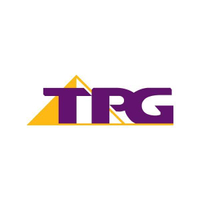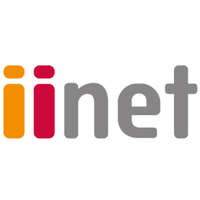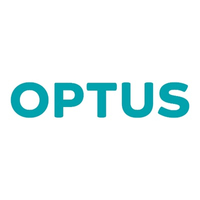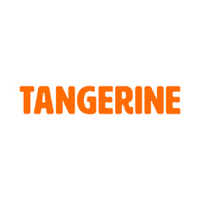Best 5G home internet plans in Australia April 2025: Telstra, Optus and more compared
These are the 5G home broadband plans we recommend

The best 5G home internet plans are worth considering as rivals to the best NBN plans with fast speeds, competitive pricing, and, in many cases, unlimited data.
A 5G home internet connection relies on the same wireless networks that a 5G networks that a mobile phone plan may rely on – such as those managed by Telstra, Optus and Vodafone. Unlike phone plans, 5G broadband plans are structured for use in the home, with unlimited data a common offering alongside high speeds.
5G home internet plans are especially worth considering if you've been having constant issues with your NBN connection – such as if you're suffering constant outages, if you can't access the free FTTP upgrade from your premises, or if the connection doesn't exist at all.
If 5G isn't an option in your area, it's worth checking out the best 4G home internet plans – these plans lack the speed benefit of 5G, but a 4G connection is much more common across Australia. Failing this, check out the best NBN alternatives.
Otherwise, if your home can be serviced by a reliable NBN service, we'd recommend one of the best NBN plans, if you're after the fastest and most consistent internet experience. Compared to the NBN, 5G has higher latency that will become noticeable in things like high-quality video calls and online multiplayer games. This is because of the nature of the wireless signals, with the NBN not having such problems as the connection would be mostly fixed-line (excluding wireless NBN options, of course).
But enough waffling on — here are the best 5G internet plans in Australia right now.
Best 5G home broadband plans in Australia April 2025
Why you can trust TechRadar
We’ve compared the best 5G broadband plans in Australia and picked out the ones delivering the most bang for your buck.
Best overall 5G home internet plan
TPG | 5G home internet | no lock-in contract | AU$54.99 p/m (for six months, then AU$64.99 p/m)
If you'd like to balance high speeds and a decent monthly cost, then TPG's premium 5G broadband plan is for you. With a six month discount in which you'll only pay AU$54.99 p/m, this plan offers a 100Mbps maximum download speed paired with an 18Mbps upload. After six months, the price reverts to AU$64.99 p/m. Don't worry about the modem as there's one included, though you'll need to return the modem if you cancel your plan or pay it out.
Total minimum cost: AU$54.99 (including modem) | Total cost for first year: AU$719.88 | Ongoing yearly cost: AU$779.88
Best cheap 5G home internet plan
iiNet | 5G home internet | No lock-in contract | AU$49.99p/m (for 6 months, then AU$59.99p/m)
iiNet offers two competitively-priced 5G home internet plans, with the entry-level option being our pick of the bunch when it comes to the cheapest on offer. With no need to pay for postage or equipment, iiNet’s 50Mbps maximum speed plan comes with a discounted price of AU$49.99 per month for the first six months, after which it switches to AU$59.99. There's no capped data, so don’t feel limited with Netflix streaming and gaming. A modem router will be provided to you, and if you cancel your plan, you’ll need to return it to iiNet within 30 days.
Total minimum cost: AU$49.99 (including modem) | Total cost for first year: AU$659.88 | Ongoing yearly cost: AU$719.88
Best premium 5G home internet plan
Optus advertises typical evening speeds of 210Mbps (20Mbps upload), but since there is no cap on the potential maximum, you may find you achieve speeds far greater than this. Due to factors such as your distance from the 5G tower and the line of sight, that typical evening speed isn’t an absolute figure – though the telco offers a 50Mbps minimum speed guarantee with this plan. If you find you do achieve the fast download speeds, it makes this plan competitively priced.
If you cancel within 36 months, you'll need to pay out the cost of the modem (AU$468) minus AU$13 for every month you were connected up to three years.
Total minimum cost: AU$557 (including modem) | Total cost for first year: AU$1,128 | Yearly cost after discount: AU$1,188
5G Home Broadband FAQ
What is 5G home internet?
5G home internet is a broadband type that leverages mobile networks maintained by Telstra, Optus and Vodafone. 5G is the fastest mobile network band currently available in Australia and is in the process of being rolled out across the country – which is why it’s not available in a lot of places. It’s theoretically 10 times as fast as 4G, making it far better suited for things like high quality streaming and faster file downloads.
Will 5G replace the NBN?
It’s highly unlikely that 5G will 'replace' the NBN because, for the most part, they’re separate things altogether. The 5G networks operated by Australia’s three largest telcos is mainly used for mobile phone connections, whereas the NBN services homes and businesses with high speed fibre. In regional Australia, where fixed wireless NBN is used where fibre lines cannot reach, a combination of 5G and 4G technologies are used to service homes with internet.
But when talking about your household specifically, it could be worthwhile switching to 5G if your NBN connection has been failing you or you want to try an NBN alternative.
HFC and FTTP-type NBN plans are more likely to be consistent than 5G plans because of the use of high-speed fixed line tech. This provides lower latencies than what 5G could ever offer – even in the most optimal conditions.
But if you live in a household or area with consistent NBN dropouts, outages and maintenances (say for example, a home serviced by FTTN or FTTC connections), 5G home internet can represent a worthwhile alternative. If you want to stick to a fixed-line connection, we suggest looking into the NBN’s free fibre upgrade program.
Which companies have 5G home internet plans?
Australia’s three big telcos, Telstra, Optus and Vodafone, offer their own 5G home internet plans, but which smaller MVNOs have plans on offer?
Some top 5G home internet plans are available from Telstra, Optus, Vodafone, iiNet, Spintel, TPG and Yomojo. Plan speeds and prices can vary greatly between these providers. 5G coverage, even for mobile plans, is still not widely available across every telco in Australia, and 5G home internet plans are even more rare.
And this is pretty well summed up when you look at 5G coverage maps across Australia, including those from the telcos listed below:
• Telstra 5G coverage
• Optus 5G coverage
• Vodafone 5G coverage
When will 5G home internet be available?
5G home internet is here, with Telstra, Optus and TPG all now offering a 5G home internet option, along with a select few MVNOs. The major caveat, though, is that it’s only available in select areas.
As for availability, 5G coverage is available in all capital cities in Australia, though Darwin is only served by Vodafone’s 5G network at present. A number of regional centres across the country also have access to 5G coverage.
The initial rollout of 5G has been based on higher frequency bands, that deliver lots of capacity over short distances, which isn’t much use in rural areas where there are fewer people spread over much larger areas.
How fast is 5G? Is it faster than regular broadband?
5G can be quite a lot faster than many broadband connections, though you should take any headline figures with a grain of salt. Quoted 5G speeds are theoretical, as you’ll know if you’ve ever struggled to do anything on a one-bar 4G connection.
For 5G, speeds are expected to be between 100Mbps and 1Gbps, according to WhistleOut. On Telstra’s 5G home internet sign up page, the telco reports download speeds between 50Mbps and 600Mbps. However, you should only expect to reach top speeds under ideal conditions, and that qualifier is important because mobile data speeds are affected by signal strength, interference and congestion.
But it’s not just about straight line speed. Latency matters too. Latency is the gap between asking for something and getting it: a song, perhaps, or throwing a grenade at someone in a game. The longer the lag the worse the performance. On 4G, latency hovers somewhere between 50 to 100 milliseconds; on 5G that can drop into single digits.
We have a dedicated guide on how to do an NBN speed test, which you can also use to test your 4G or 5G speed.
Best mobile broadband plans
If you're looking for something that's a touch more portable, mobile broadband could be a great option, with plans available that you can either pop into your tablet or laptop with a SIM card or slot into a dongle or portable modem.
Best big-data mobile broadband plan
Tangerine | Mobile broadband | 100GB data | No lock-in contract | AU$34.90p/m
If you’re more data-hungry, consider this 5G-capable mobile broadband plan from Tangerine. It gives you 100GB a month to burn through for just AU$34.90 each billing.
Tangerine uses parts of Telstra’s 5G and 4G networks, though it says download speeds are capped at 100Mbps for both – that still makes it as fast as some of the best NBN 100 plans. You can find Tangerine mobile broadband plans with 200GB and 400GB of data, and these cap speeds at 250Mbps, but you do need to pay a lot more each month.
If you don't already own a mobile broadband router, then Tangerine is happy to sell you one for the rather steep cost of AU$399.
Total minimum cost: AU$34.90 | Total cost for first year: AU$418.80
Get daily insight, inspiration and deals in your inbox
Sign up for breaking news, reviews, opinion, top tech deals, and more.

Zac has been in the tech writing game for six years, having previously written for Gizmodo Australia, Canstar Blue, and The Daily Mail Australia (with articles on Nine, Junkee, Kotaku Australia and Lifehacker Australia). He’s a huge nerd with a deep passion for technology. While his main focus at TechRadar Australia is phones, monitors and peripherals, he also has a deep interest in the growing Australian EV landscape. Outside of Techradar, Zac’s a Headspace (a youth mental health organization) volunteer and an avid gamer.
- Jasmine GearieEcommerce Editor
- Max LangridgeStaff Writer



